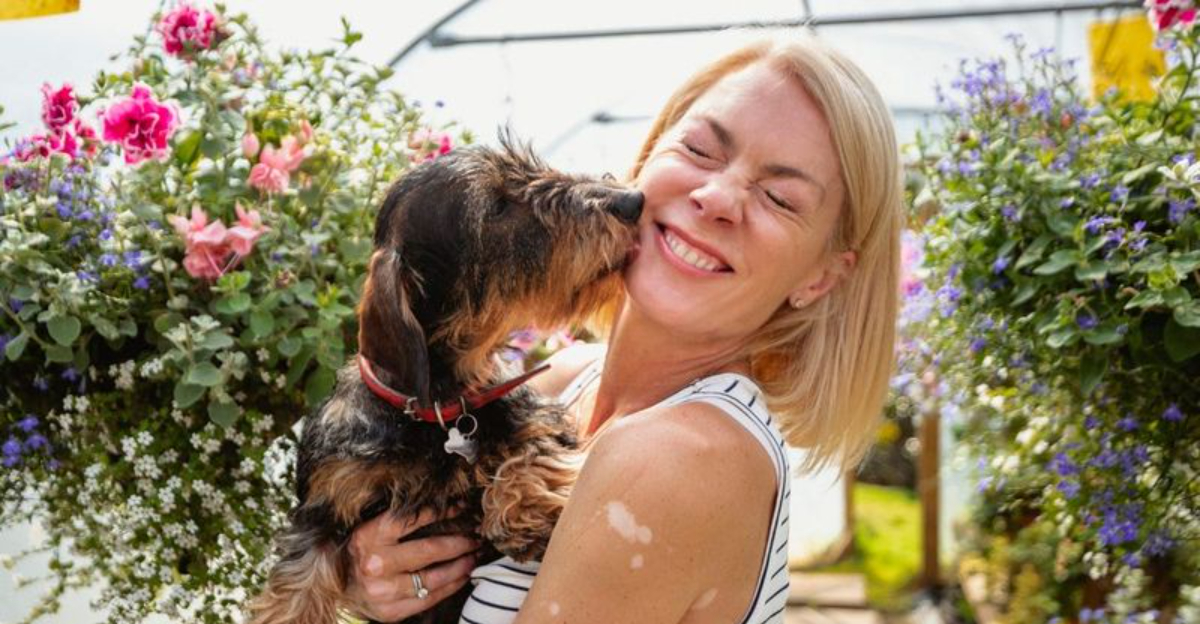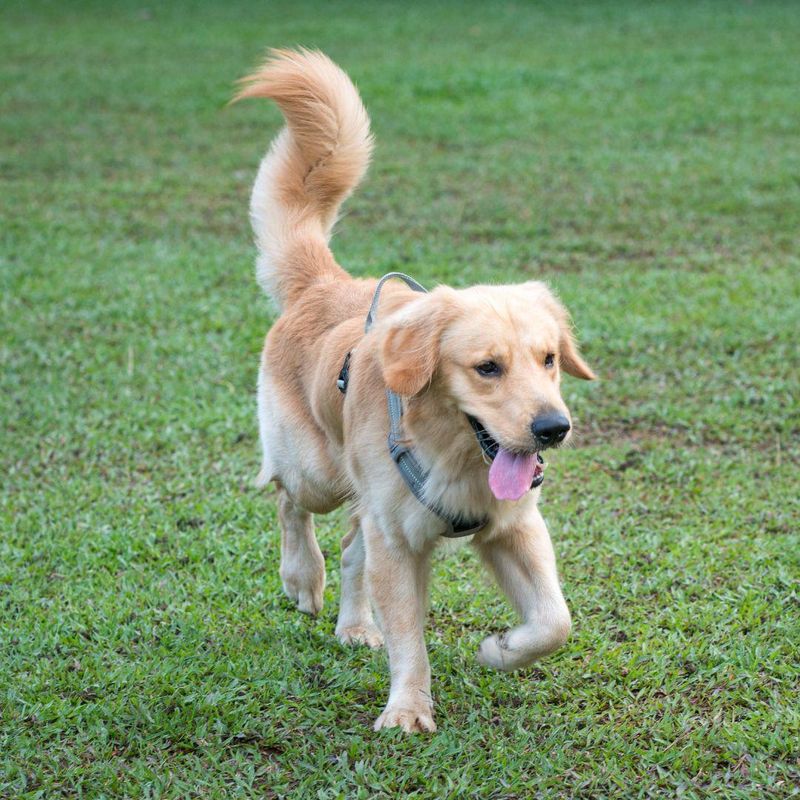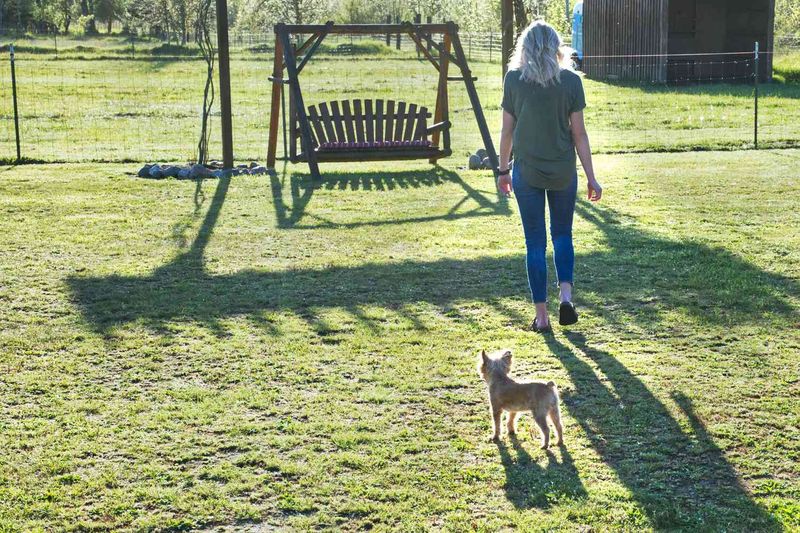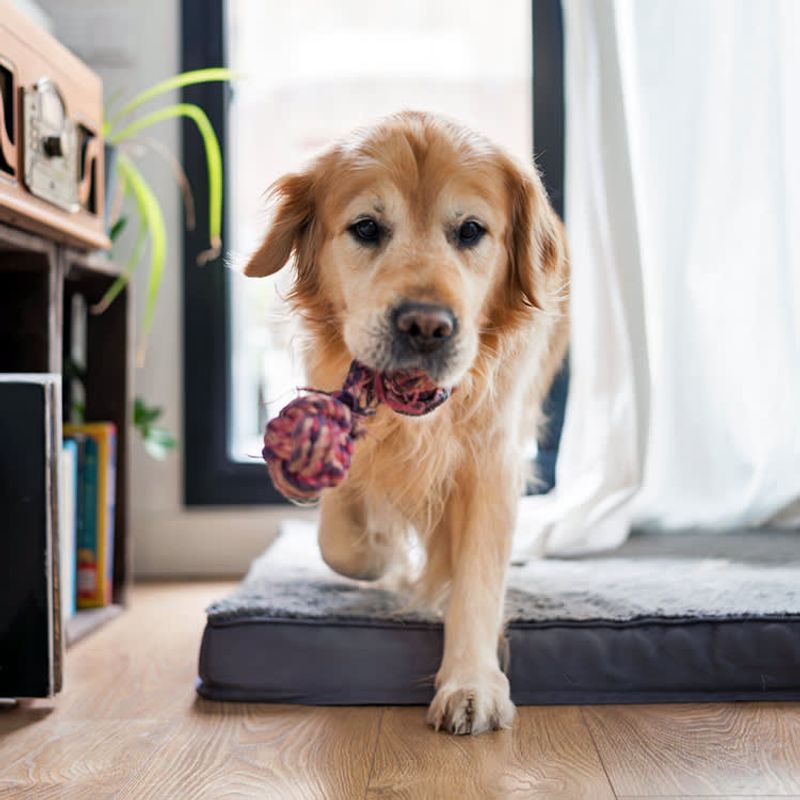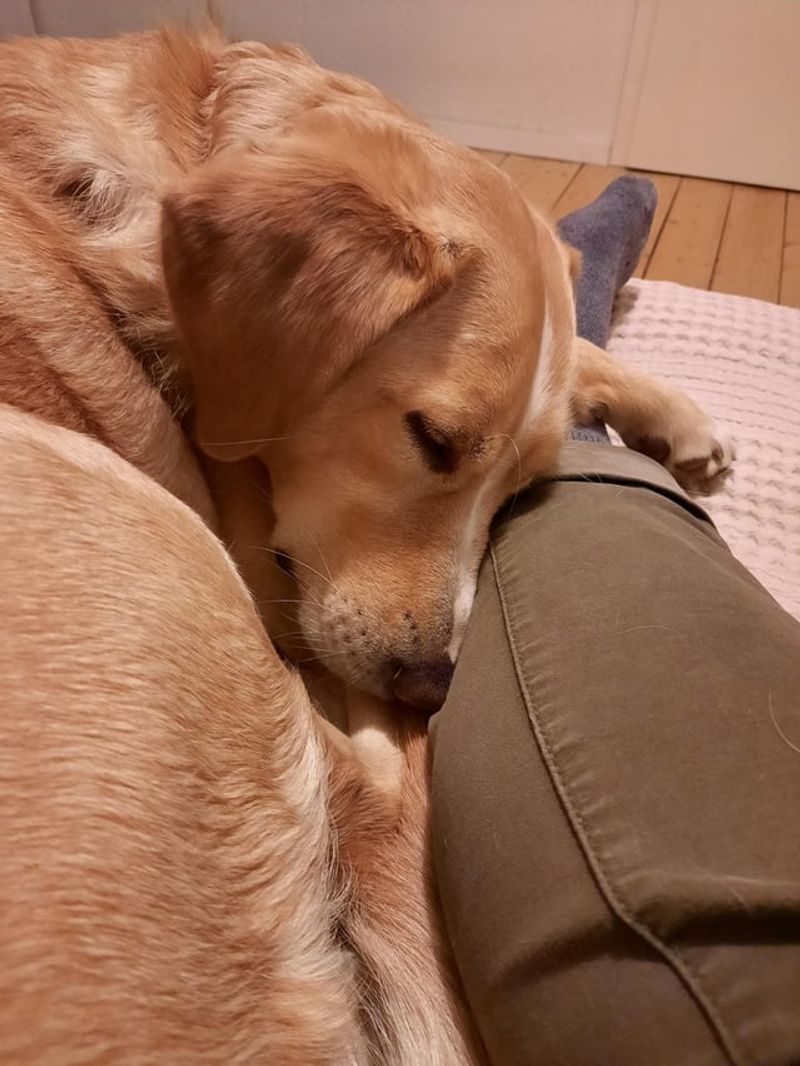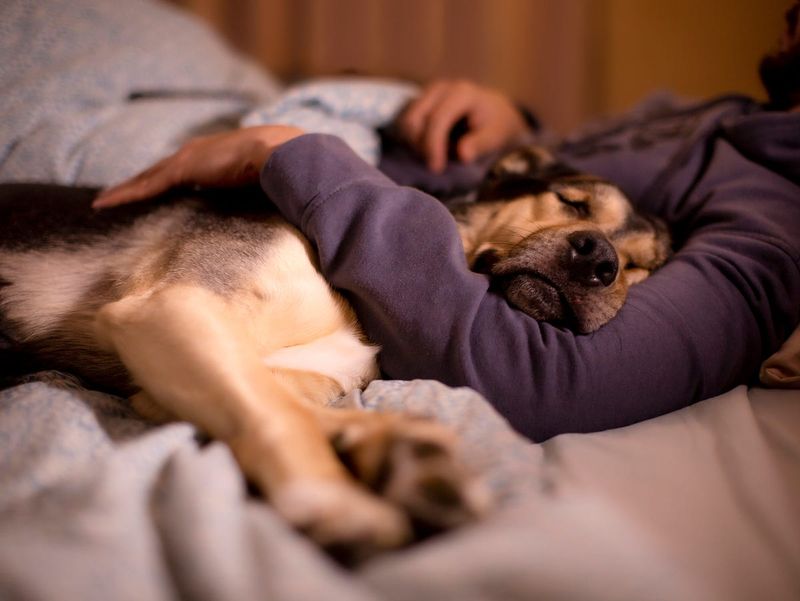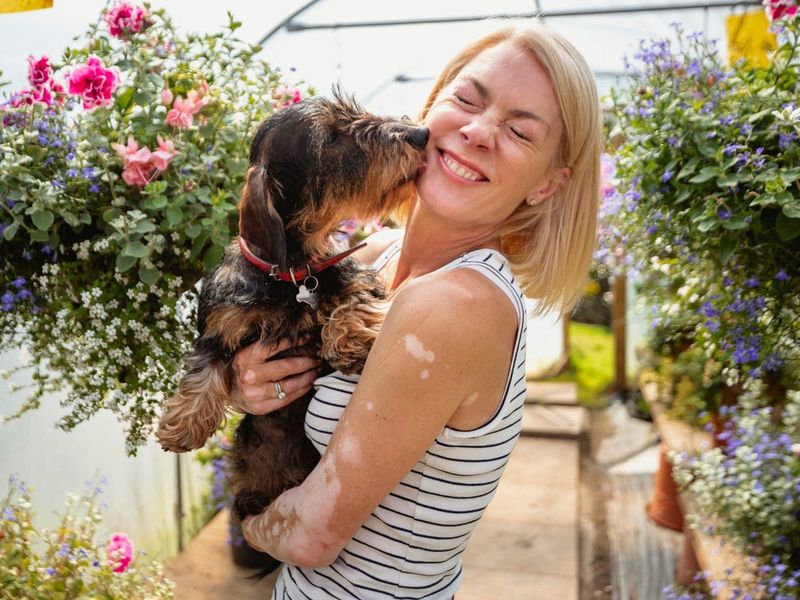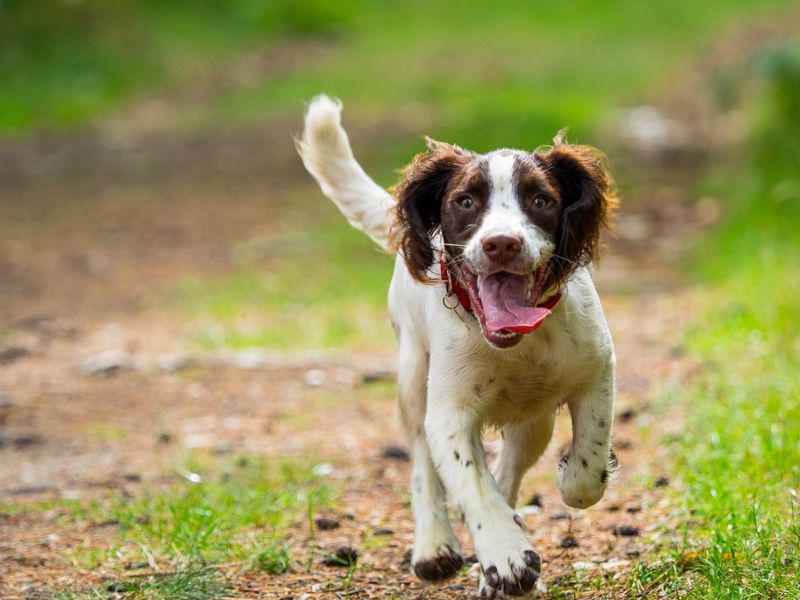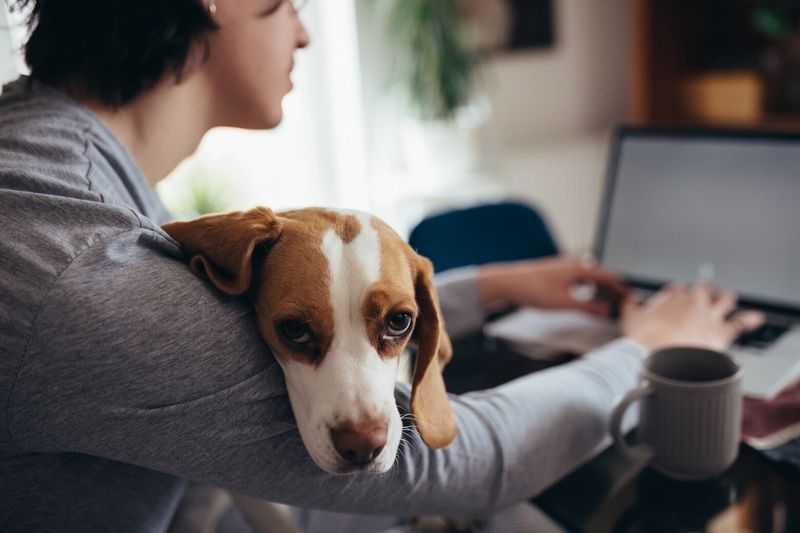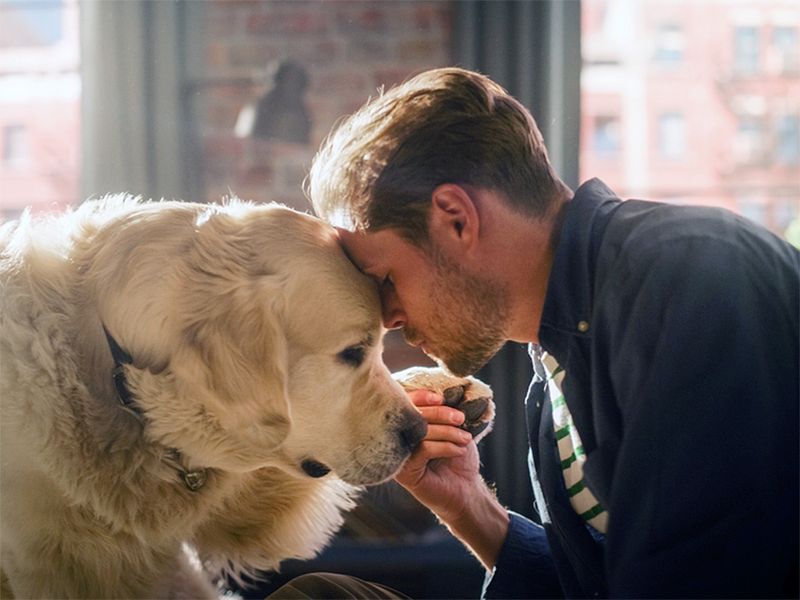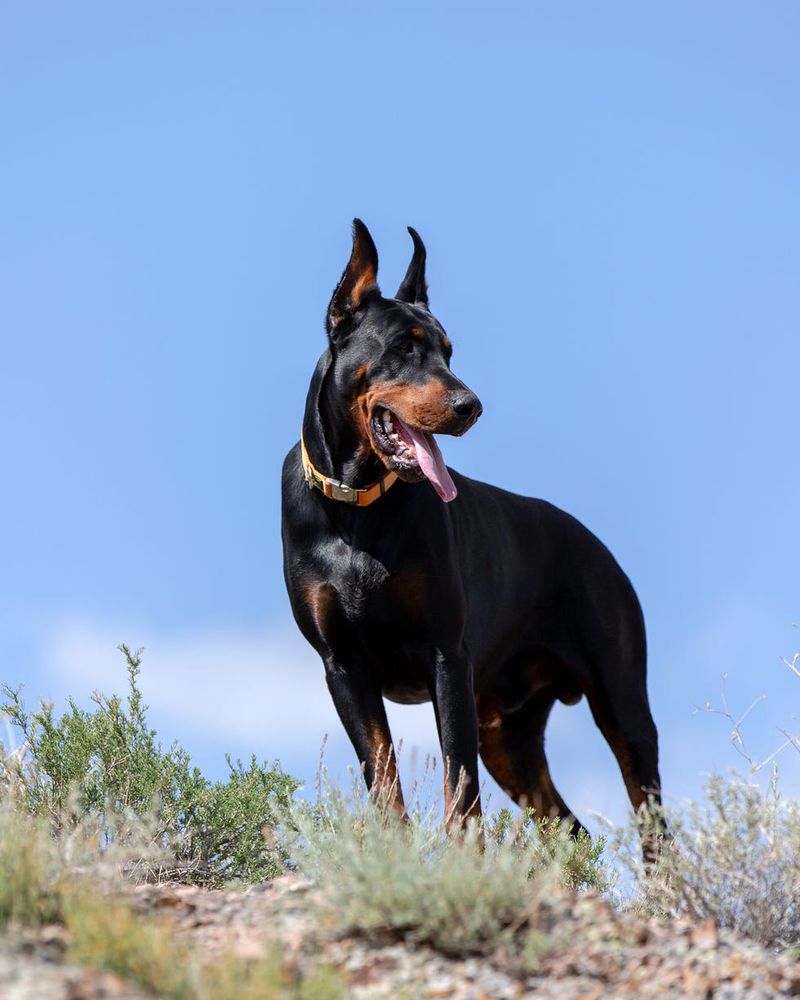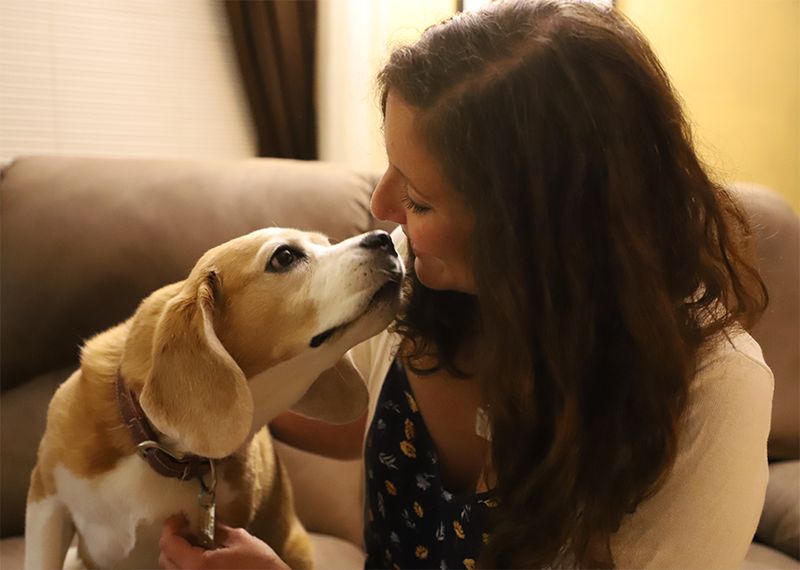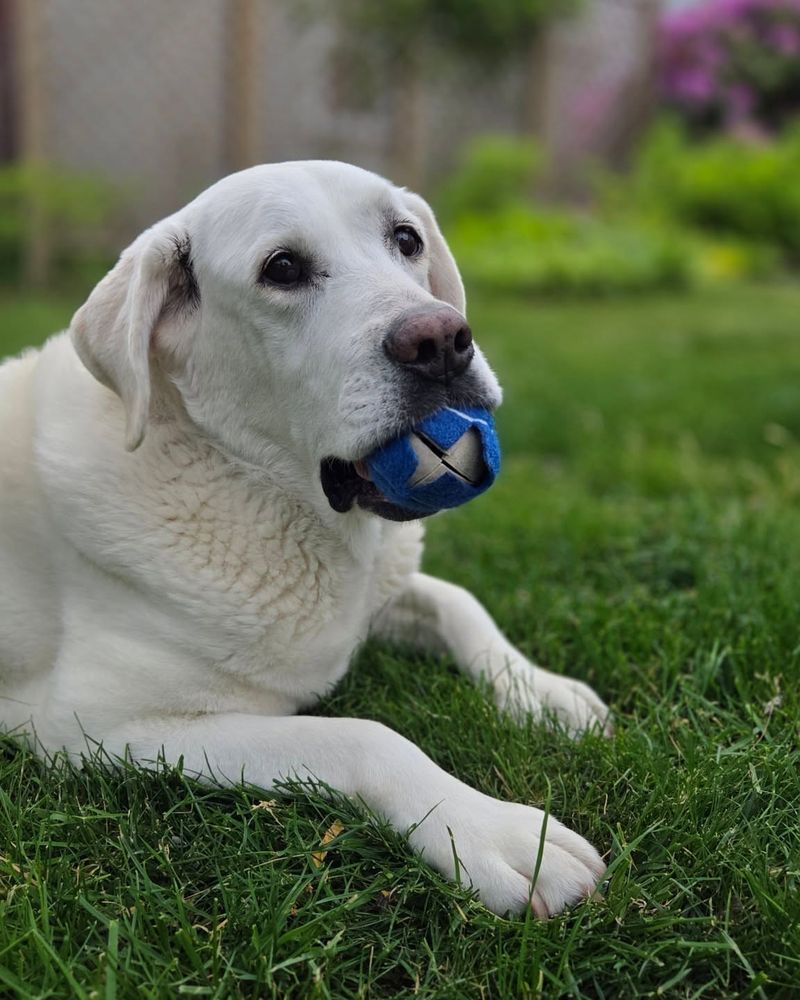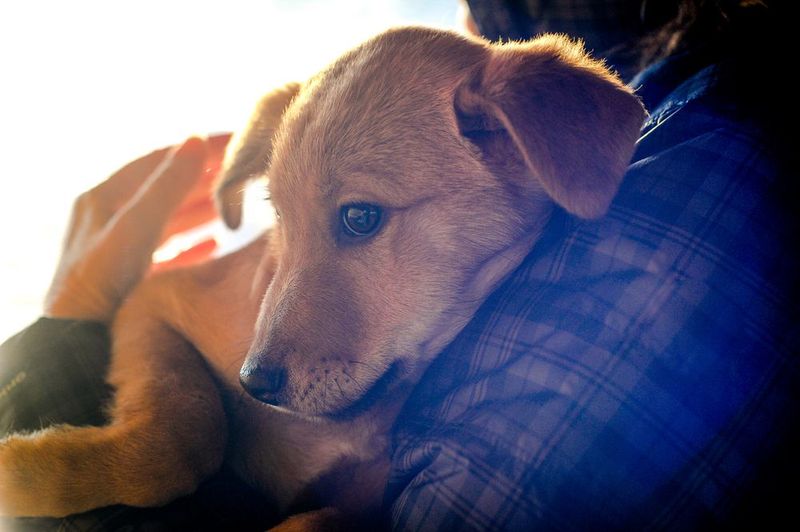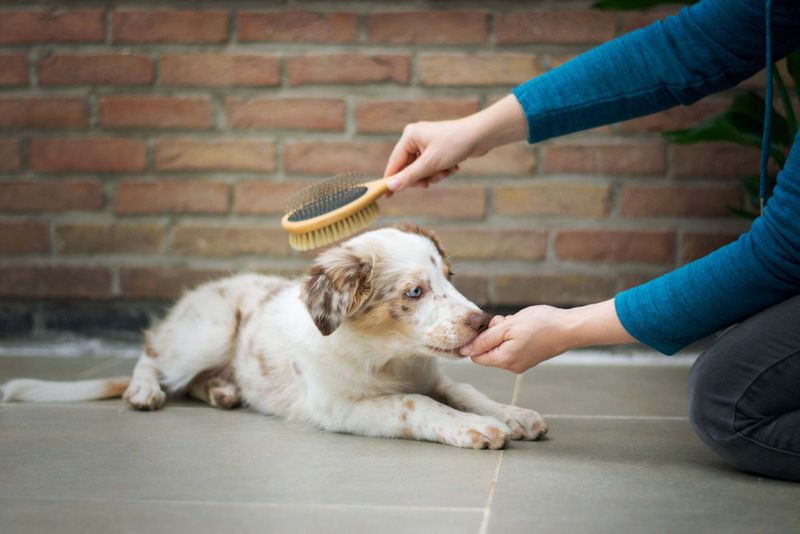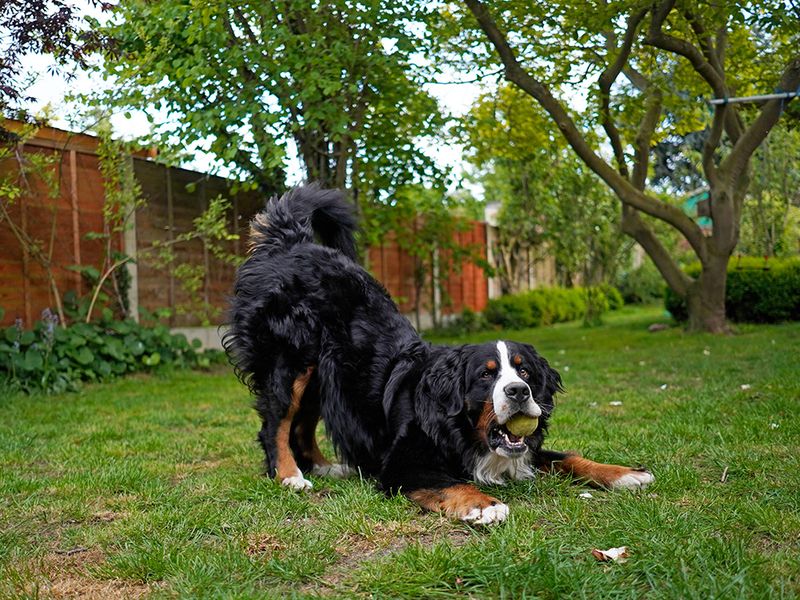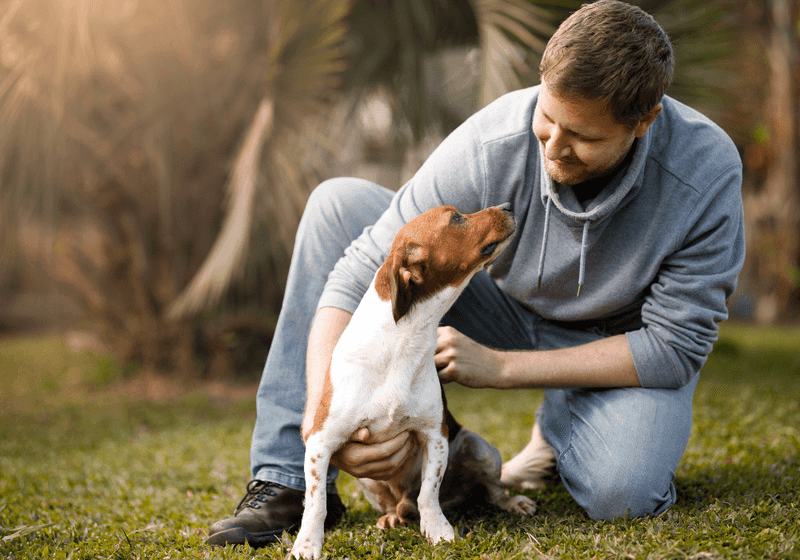Understanding the depth of your dog’s attachment can enrich your relationship with them. Dogs express their love and loyalty in subtle and overt ways, reflecting their unique personalities and the bond they share with you. Here are 17 distinctive behaviors that indicate your dog is deeply attached to you.
Tail Wagging Excitement
Every dog owner knows that unmistakable sight: a rapidly wagging tail, paired with eyes full of excitement. This behavior is more than just a happy welcome; it’s a sign your dog truly cherishes your presence.
Dogs use their tails as a form of communication, expressing emotions ranging from curiosity to pure joy. When a dog wags its tail energetically upon seeing you, it’s a clear indication of their attachment and happiness.
Did you know? Different tail wags can convey various emotions, but the enthusiastic wag is a universal sign of affection and attachment.
Following You Everywhere
With every step you take, your dog is right there, a constant shadow in your life. This behavior signifies more than mere curiosity or neediness; it demonstrates a deep-seated bond.
Dogs, naturally pack animals, find comfort in staying close to their human pack members. This closeness provides them with reassurance and security.
Fun Fact: Some breeds, like the Border Collie, are particularly known for their ‘Velcro’ nature, constantly sticking by their owner’s side due to their loyal and protective instincts.
Bringing You Their Favorite Toy
Picture this: your dog trots up, favorite toy in mouth, eyes imploring you to play. When a dog offers you its cherished toy, it’s not just inviting play; it’s offering a part of its world.
This gesture reflects trust and affection, as they’re willing to share what they hold dear. It’s a testament to the bond you share.
Historically, dogs have been known to offer gifts or tokens to their pack leaders, a behavior rooted in their instinct to please and connect with their loved ones.
Leaning Against You
Imagine sitting peacefully, and your dog comes over, leaning its body against yours. This action isn’t just about finding a comfortable spot; it signifies trust and affection.
Leaning shows your dog feels safe and secure around you, using your body as a source of comfort. It’s a simple yet profound way dogs express their attachment.
Quirky Fact: Some dogs, like Great Danes, are known as ‘leaners’ because of their size and affection, often leaning on their owners to show their love.
Sleeping Close to You
There’s something heartwarming about a dog choosing to sleep near you. This behavior isn’t merely about seeking warmth or comfort; it reflects your dog’s deep trust and attachment.
Dogs feel vulnerable when they sleep and choosing to do so near you signals they feel safe. It’s their way of saying they consider you part of their family.
Did you know? Wolves in the wild sleep close to their pack for protection, a trait that domesticated dogs have retained, showing their loyalty and trust in their human companions.
Licking Your Face
Is there any greeting as enthusiastic as a dog licking your face? To dogs, licking is a natural way of showing affection and care.
This behavior stems from instincts, as puppies lick their mothers for comfort and bonding. When a dog licks you, it’s expressing its attachment and affection, akin to canine kisses.
Fun Fact: Dogs have been known to lick the faces of their family members to reinforce social bonds and show affection, a behavior observed even in wolf packs.
Excitement When You Return
Returning home to a bouncing, joyful dog is one of life’s simple pleasures. This excitement isn’t just about routine; it reflects your dog’s deep bond with you.
Dogs have an extraordinary ability to sense time and often eagerly anticipate your return, showing sheer joy when you walk through the door.
Did you know? Dogs can recognize the sound of your car and footsteps, triggering their excitement even before you enter the house! Such behavior underscores their attachment and loyalty.
Checking On You Regularly
Ever notice your dog nudging open a door to check on you? This behavior goes beyond mere curiosity, highlighting their caring nature.
Dogs are naturally attentive to their pack members. Regular check-ins show they care about your wellbeing and want to ensure you’re safe.
Fun Fact: Certain breeds, like the German Shepherd, excel in roles that require vigilance and monitoring, making them especially attentive and caring companions.
Mirroring Your Emotions
Dogs are known for their incredible empathy, mirroring the emotions of those they love. Whether you’re joyful or sad, your dog senses it and responds accordingly.
This emotional synchronization is a testament to your dog’s attachment, reflecting its deep bond with you. By aligning their emotions with yours, dogs show understanding and support.
Did you know? Dogs have been shown to mimic human expressions, demonstrating empathy and attachment much like close human friends do.
Guarding You
Imagine feeling watched over by a devoted guardian. Some dogs take on the role of protector instinctively, a behavior born out of love and attachment.
Guarding reflects their desire to protect their pack, ensuring safety and peace. Breeds like Rottweilers are known for their protective nature, often keeping a watchful eye over their loved ones.
Quirky Fact: Throughout history, dogs have been celebrated for their guarding instincts, a trait that has cemented their place as loyal companions.
Giving You Soft Looks
Those moments when your dog looks deeply into your eyes can be profoundly touching. Such looks are rich with meaning, indicating trust and affection.
Eye contact is a powerful form of communication for dogs. When they gaze at you softly, it’s akin to a warm hug, sharing a moment of connection.
Fun Fact: Research has shown that when dogs and humans engage in mutual eye contact, it increases oxytocin levels, the same hormone that strengthens bonds between humans.
Bringing You ‘Gifts’
A surprising gift of a leaf or toy from your dog might seem puzzling, but it carries a heartfelt message. This behavior, rooted in instinct, reflects their affection.
Dogs often bring items to those they are attached to, sharing what they find interesting or valuable. It’s a gesture of goodwill and connection.
Did you know? In the wild, canines bring gifts to pack leaders as a sign of respect and bonding, a trait that domestic dogs have retained with their human families.
Seeking Comfort When Scared
When thunder rumbles or fireworks explode, and your dog seeks the safety of your lap, it’s a touching display of trust and attachment.
Dogs find solace in their owners during frightening times, showcasing their belief in your protective presence.
Fun Fact: Dogs have been observed seeking out their owners during stressful situations, much like a child seeks their parent’s reassurance, highlighting their deep emotional bonds.
Enjoying Grooming Sessions
Grooming isn’t just about keeping your dog tidy; it’s a bonding experience. If your dog enjoys being brushed, it indicates trust and affection.
During grooming, dogs are at their most vulnerable, relying on you for care and comfort. Their enjoyment signifies a strong attachment and mutual respect.
Did you know? Regular grooming sessions can enhance your bond with your dog, making them feel loved and cherished.
Playful Bows
When your dog lowers its front legs and raises its rear, it’s not just stretching; it’s inviting you to play. This playful bow is a sign of affection and joy.
Dogs use this gesture to signal friendly intentions, encouraging interaction and bonding. When they do this with you, it’s a testament to their happiness and attachment.
Fun Fact: The play bow is a universal signal among canines, fostering socialization and fun.
Responding to Your Voice
Calling your dog’s name and seeing it rush to you with bright eyes is a rewarding experience. This responsiveness is a sign of their attachment and love.
Dogs are attuned to their owner’s voice, recognizing it as a source of comfort and guidance. Responding eagerly reflects their bond and readiness to connect.
Did you know? Dogs can differentiate human voice tones, understanding when they’re being praised or called, showing their deep connection to their human companions.
